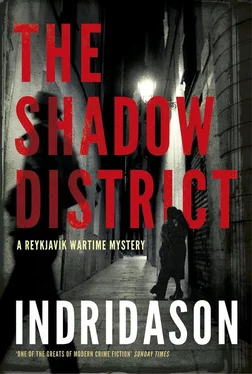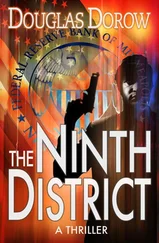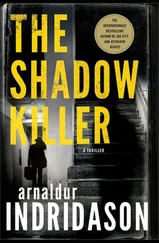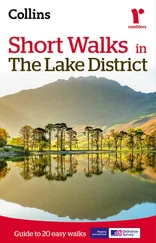Konrád had also searched for Hólmbert’s name and learnt that he had run the firm creditably at his father’s side, expanding and diversifying the business so that its share portfolio now included fisheries, an airline and a large building supplies chain. In the last months of the war, after abandoning his law degree at the University of Iceland, Hólmbert had sailed to America, where he made deals and established business connections that were to prove invaluable for the company. His wife, who was still alive, had also sat on the board and was well known for her charity work with organisations such as the Red Cross and Icelandic Church Aid. Hólmbert had ventured into politics like his father, becoming a member of parliament, then a cabinet minister in two governments, before retiring to devote himself entirely to running the firm. He was an honorary member of various business associations and had been decorated by the president for services to his country.
The couple’s son had taken over as managing director of the company at the start of the millennium. By then Hólmbert would have been getting on a bit, and, Konrád guessed, the first signs of Alzheimer’s might have begun to impair the old man’s judgement.
He returned to puzzling over what Magnús had said about his father’s presence in the Öxarfjördur area at the time of Hrund’s alleged suicide, and he suddenly thought of another question he should have asked. He checked the clock. Perhaps it wasn’t too late.
He looked up the number and took out his mobile phone. But as he was waiting for Magnús to pick up, he checked the clock again and realised that the old man had probably gone to bed; his question could easily wait until morning. He was about to hang up when Magnús answered.
‘Hello?’ he heard him say.
‘I’m sorry to ring so late, Magnús. I do hope I didn’t wake you.’
‘Who is this?’
‘Konrád — I visited you earlier today. Were you asleep? It can wait till morning.’
‘What... why are you ringing?’
‘Because of a tiny detail that’s been bothering me ever since I left you.’
‘What’s that?’
‘You told me your father had been on a visit to the north of the country around the time the girl went missing.’
‘Yes?’
‘Did he tell you or your family anything else about the incident, any details he picked up locally about the girl, for example?’
‘No, it... probably only the bit about the huldufólk .’
‘Did you hear that from him?’
‘Yes, or my brother.’
‘Your brother?’
‘Yes, Hólmbert.’
‘How did he know about it?’
‘Oh, because he was travelling up there with our father when it happened. We heard the story from them. And of course I heard more about it later when I went there myself and...’
‘You’re saying Hólmbert was also there at the time of the girl’s disappearance?’
‘Yes, that’s right. Hólmbert was quite the favourite with our father, so he used to take him along on his trips. You were...’
The connection deteriorated and Konrád missed what Magnús said.
‘Sorry, I didn’t catch that, my battery’s running low, could you —?’
‘... and a man called me recently, enquiring about exactly the same thing,’ Magnús was saying. ‘About Hólmbert and my father’s trip up north. You were telling me earlier about a man you thought might have visited me, but I didn’t know what you were talking about. Well, I think it must have been him. The one who phoned. It had completely slipped my mind.’
‘Do you mean Thorson? Stefán, that is. Did he ring you?’
‘Yes, it must have been the Stefán you mentioned. He said he’d been reminiscing with someone about Öxarfjördur and odd, unexplained incidents that had happened in the area, and the subject of the girl had come up, and I told him... he was particularly interested in Hólmbert — I couldn’t work out why.’
‘What did you tell him?’
‘What I told you, that Hólmbert had been visiting the area with our father. Look, I wasn’t quite straight with you when you started asking about the Rósamunda affair. The truth is, we were familiar with the incident because a family friend, a relative of ours really, a young man called Jónatan, was involved in some way that was never properly explained to me. It wasn’t talked about. I suppose it was a skeleton in our family’s closet, so to speak.’
‘So you decided to keep quiet about it?’
‘I’m not in the habit of discussing private matters like that with strangers.’
‘Who was this Jónatan?’
‘He was a student at the university.’
‘Did you say student?’ Konrád remembered Petra saying that Thorson had muttered something about a student as he left. He thought of the notes describing an interview with an unnamed university student. What happened was a tragedy.
‘Yes, apparently he died after being hit by a car. I didn’t know him very well. But my brother Hólmbert and he were friends. And really, that’s all I’ve got to say on the matter. I’m ringing off now. Goodbye.’
Thorson picked his way slowly along the path, past graves marked by crosses and headstones which here and there had sunk into the ground, standing crooked, weather-beaten and mossy, their inscriptions nearly illegible. These were the old graves, bearing dates from early last century, from a vanished age. Yet, as Thorson contemplated them, he realised he was older than many of them. A few of the stones dated from the years around the Second World War, and it was to one of these that he made his way now. Since returning to Iceland he had often visited the cemetery and beaten a path to this particular grave. Nowadays the walk took him longer; he used to be quicker on his feet. The years had rolled by, one much the same as the next, for in Iceland he had found the quiet life that he had craved after the war was over. The only surprise was that he should have lived so long. Thorson came to a halt in front of the stone. His mood was lighter than it usually was when he made this pilgrimage. Finally he had news to impart, though he knew it came too late.
Although it had all happened a lifetime ago, Thorson had never quite been able to forget Jónatan or Rósamunda. The other day he had been sitting at the kitchen table, leafing through the papers, when his eye happened to fall on a page of obituaries for a woman who had worked at the dressmaker’s where Rósamunda had once been employed. He remembered the woman’s name and recognised her face from the accompanying photo. She had been a friend of Rósamunda’s. He and Flóvent had interviewed her at the time; she was the girl with the raven-black hair who had told them about Rósamunda’s rape. There couldn’t be many people who remembered the events surrounding the girl’s murder, and their numbers must be rapidly dwindling. He himself was living on borrowed time, and soon there would be no one left who knew or cared about Rósamunda’s fate. Obeying a sudden whim, he decided to go along to the funeral.
The church was packed when Thorson arrived and he took a seat towards the back. The minister chanted out of tune and a choir sang the funeral hymn, after which the congregation was invited to attend a reception in the church hall. There Thorson ran into an old engineering acquaintance. They had both been involved in bridging the rivers on the vast glacial sands east of Vík í Mýrdal, which had led to the long-awaited completion of the Ring Road in 1974. Their conversation came round to the deceased who, it turned out, had worked in the engineer’s office, and Thorson explained that he had met her because she’d once worked for a dressmaking company that had featured in an old murder investigation. The engineer was intrigued, so Thorson filled him in on the details of the Rósamunda case, at which point it emerged that the man knew a woman called Geirlaug, who was a family friend of the dressmaker in question and still in touch with her daughter. But the engineer couldn’t remember the dressmaker’s name.
Читать дальше












